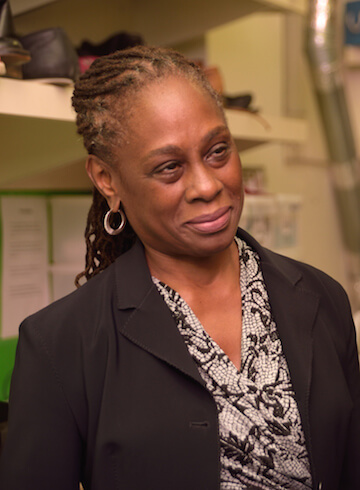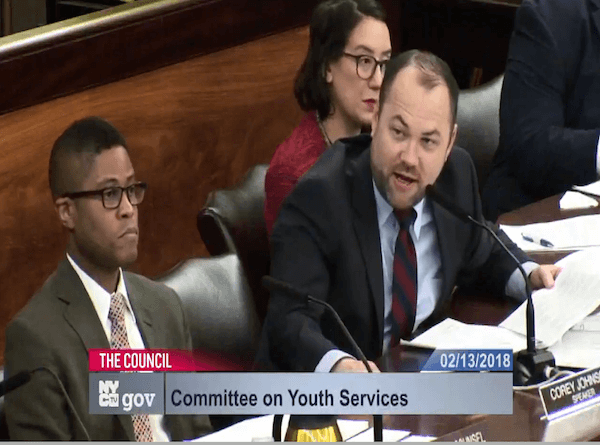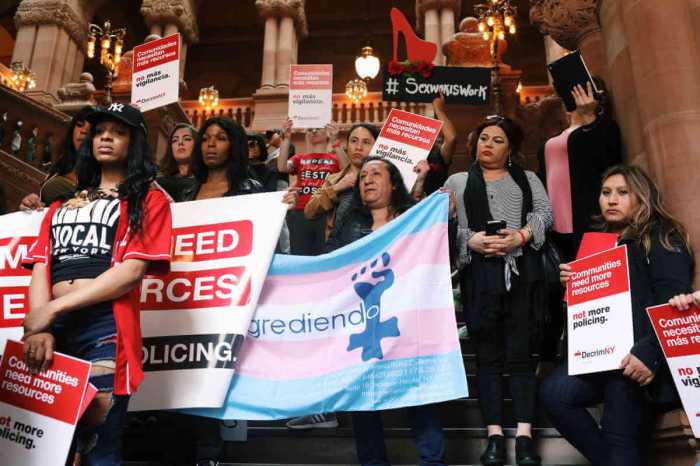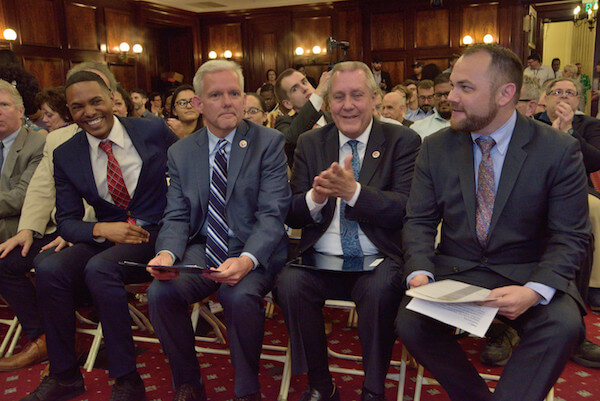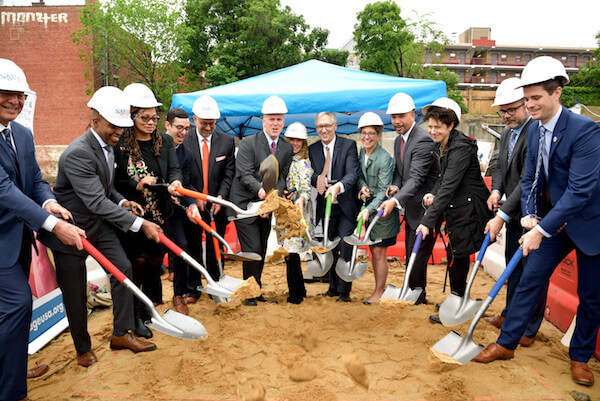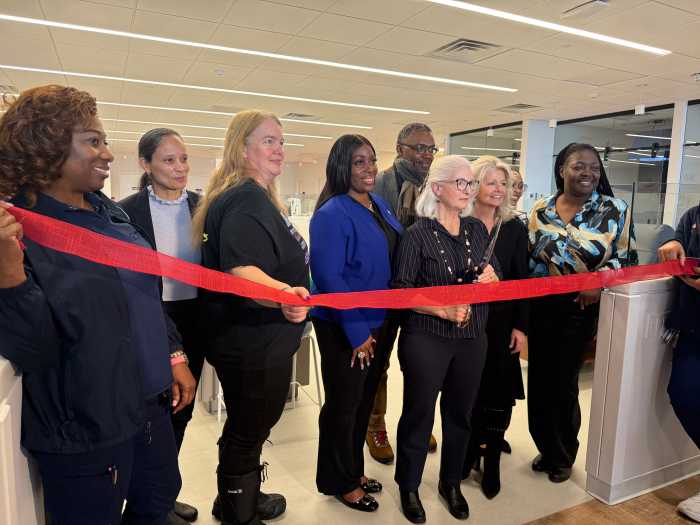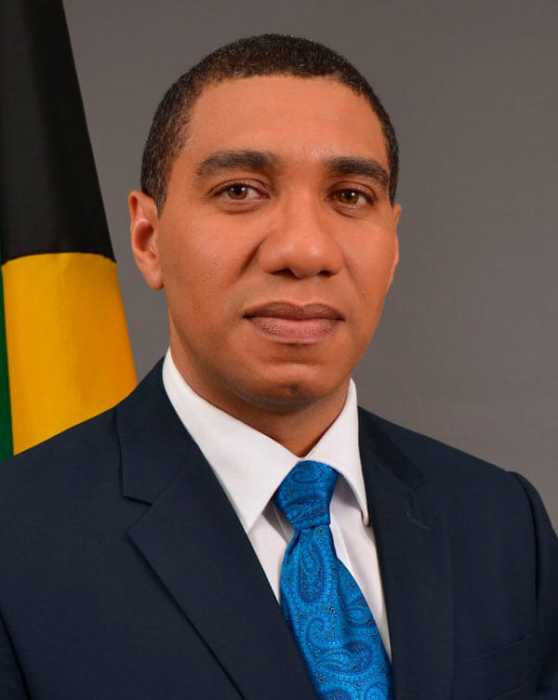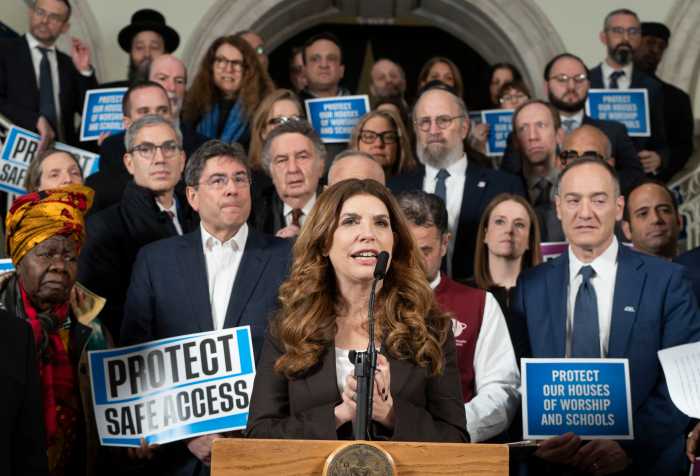City Council Speaker Corey Johnson addresses officials from the Department of Youth and Community Development at a February 13 hearing of the Youth Services Committee. | COUNCIL.NYC.GOV
In the eight years since former Mayor Michael Bloomberg convened a special commission to study the hurdles facing runaway and homeless youth (RHY) in New York City, advocates organized as the Campaign for Youth Shelter have pushed the city to expand eligibility for New Yorkers without stable housing to enter youth-specific facilities from the existing age limit of 20 up to the age of 24.
Now, two and a half months after the City Council unanimously approved legislation mandating that the city’s Department of Youth and Community Development (DYCD) implement shelter services for the 21-24 age range, the Council and the de Blasio administration have agreed to provide $1 million in such funding for the fiscal year beginning July 1.
That money will fund 20 shelter beds specifically for the 21 to 24-year-old age group and the shelter provider will be required to meet DYCD’s criteria for LGBTQ-affirming and supportive housing. No neighborhood has yet been designated for the facility, but a request for proposal will go out to shelter providers in the near future.
But “initial investment” provides only 20 percent of what Council, advocates sought
While advocates are pleased that the city is moving on a long sought goal, the funding level is well below what they had hoped to see in the new budget — and, in fact, considerably short of what the Council itself called for just seven weeks ago in response to Mayor Bill de Blasio’s preliminary budget. Both advocates and the Council sought funding for 100 new beds or a total of roughly $5 million.
Still, out gay Speaker Corey Johnson — who with Bronx Councilmembers Ritchie Torres, who is also gay, and Vanessa Gibson had pushed the package of RHY reforms, including the age eligibility increase, in March — praised the de Blasio administration for agreeing to fund the first 20 beds for this older bracket of homeless youth.
“As New Yorkers, we all understand the pain of seeing a homeless person living on the streets or in the subways,” Johnson said in a written statement. “Our hearts break especially when we see a young person without a home. The opening of the city’s first homeless center for runaway homeless youth [21 to 24] is a major step towards progress… It’s no secret that many of these young people living on the streets are from the LGBTQ community. They’ve been kicked out of their homes for who they are, which brings about challenges that this new shelter will be uniquely qualified to address. These are our young people, and we are under a special obligation to help and protect them. I am so proud of this landmark legislation, and my colleagues in the Council for making this a priority. I thank First Lady Chirlane McCray for her ongoing efforts in assisting young New Yorkers and everyone in the de Blasio administration for their support.”
First Lady Chirlane McCray is due to appear with Speaker Corey Johnson at a May 30 City Hall press conference announcing $9.5 million in new initiatives aimed at LGBTQ youth. | DONNA ACETO
McCray and Johnson are scheduled to appear at City Hall at noon on May 30 to announce a broader package of $9.5 million in a variety of new programs aimed at LGBTQ youth.
Regarding the $1 million commitment for shelter beds for 21 to 24-year-olds, McCray, in a written statement, said, “I am proud of New York City’s responsiveness to the damage done when young people are forced into homelessness and unable to reach their full potential. This new shelter recognizes that young people often need a safety net well into their 20s, especially LGBTQ youth, who too often struggle with much higher rates of homelessness, discrimination, family rejection, and poverty than their peers. This new facility for LGBTQ youth is another investment in our children and communities who are the future of our city. This new shelter says we see you, we hear you, and we care.”
Jamie Powlovich, executive director of the Coalition for Homeless Youth (CHY), praised both Johnson and McCray for their commitment to addressing the needs of homeless youth, but also noted that she and her fellow advocates had sought a good deal more.
“CHY is grateful for the commitment that both the City Council Speaker and First Lady have shown homeless youth, and is excited to learn more about new proposed supports that are scheduled to be made on Wednesday under The Unity Project,” Powlovich said in an email message. “However, the confirmed $1M increase to support beds for youth experiencing homelessness ages 21-24yo will only fund less than two dozen new beds, and falls short of the CHY FY19 ask of $4.8M that would more adequately meet the needs of older youth by bringing online 100 additional beds.”
Like Powlovich, Carl Siciliano, founder and executive director of the Ali Forney Center, which serves LGBTQ homeless youth, was unfamiliar with the details of the $1 million budget agreement, but said, “I’m very grateful that the city is moving forward on a plan to provide youth shelter to 21 to 24-year-olds. It’s long overdue. We have over 100 21 to 24-year-olds on our waiting list right now. I urge the city to add at least 100 beds in the coming budget.”
As recently as April 10, the Council, in its official response to de Blasio’s preliminary budget, called for a $10.5 million increase in the DYCD budget to provide, among other things, “100 more beds specifically for homeless young adults aged 21-24.”
In a February 13 Youth Services Committee hearing, where DYCD officials offered testimony on the RHY legislation that the Council would go on to pass the following month, Johnson acknowledged the fiscal impact of raising the eligibility age on youth shelters, but then said, “I don’t say this in a sort of willy-nilly, irresponsible way. I don't really care what the amount of money is. I know you have to care. I know you have an agency to run. And we have some difficult fiscal times on the horizon. But when it comes to getting the requisite number of beds to homeless young people, we have to come up with the money. If it’s $4 million, if it’s $7 million, if it’s $8 million, we have to come up with the money. So this Council will continue to push for whatever that amount of money is to expand those services.”
Amidst his impassioned comments, the speaker, even as he praised the de Blasio administration for tripling the number of available beds for homeless youth to more than 750 in its first term, noted that the city budget overall is due to increase by a proposed $2 billion under the mayor’s preliminary plan. Despite that overall increase, the administration, for the coming fiscal year, has okayed only $1 million of the $5 million the Council sought for new 21 to 24-year-old shelter beds.
Asked about the $4 million gap, Kate Bernyk, a spokesperson for McCray, noted that the funding agreed to “is an important step forward in meeting the needs of homeless youth population. It’s also perhaps relevant to point out that we’re still waiting for guidelines from the State on how to implement the state policy on expanding services for this population, but we’re not waiting for that guidance to make this initial investment.”

